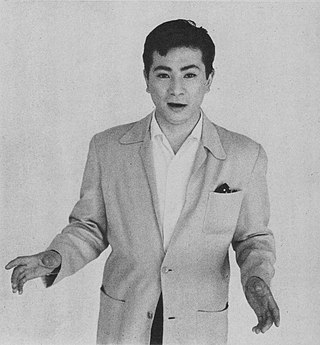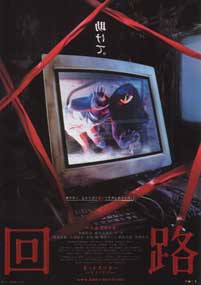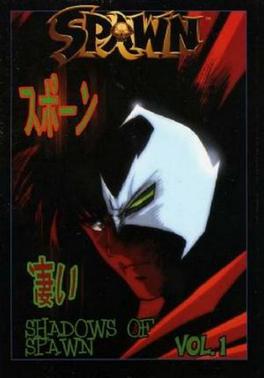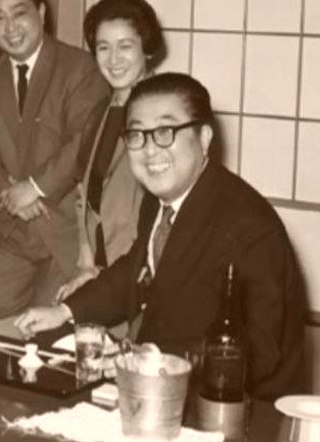Toshio Kurosawa may refer to:
Toshio Kurosawa may refer to:

Akira Kurosawa was a Japanese filmmaker and painter who directed 30 films in a career spanning over five decades. He is widely regarded as one of the greatest and most influential filmmakers in the history of cinema. Kurosawa displayed a bold, dynamic style, strongly influenced by Western cinema yet distinct from it; he was involved with all aspects of film production.

Masaki Kobayashi was a Japanese film director and screenwriter, best known for the epic trilogy The Human Condition (1959–1961), the samurai films Harakiri (1962) and Samurai Rebellion (1967), and the horror anthology Kwaidan (1964). Senses of Cinema described him as "one of the finest depicters of Japanese society in the 1950s and 1960s."

Seven Samurai is a 1954 Japanese epic samurai action film co-written, directed and edited by Akira Kurosawa. Taking place in 1586 in the Sengoku period of Japanese history, it follows the story of a village of desperate farmers who seek to hire samurai to combat bandits who will return after the harvest to steal their crops.

Toshiro Mifune was a Japanese actor and producer. A winner of numerous awards and accolades over a lengthy career, Mifune is best known for starring in Akira Kurosawa's critically acclaimed jidaigeki films such as Rashomon (1950), Seven Samurai (1954), Throne of Blood (1957), The Hidden Fortress (1958) and Yojimbo (1961). He also portrayed Miyamoto Musashi in Hiroshi Inagaki's Samurai Trilogy (1954–1956), Lord Toranaga in the NBC television miniseries Shōgun, and Admiral Isoroku Yamamoto in three different films. He is widely considered one of the greatest actors of all time.

Rashomon is a 1950 jidaigeki drama film directed and written by Akira Kurosawa, working in close collaboration with cinematographer Kazuo Miyagawa. Starring Toshiro Mifune, Machiko Kyō, Masayuki Mori, and Takashi Shimura as various people who describe how a samurai was murdered in a forest, the plot and characters are based upon Ryunosuke Akutagawa's short story "In a Grove", with the title and framing story based on "Rashōmon", another short story by Akutagawa. Every element is largely identical, from the murdered samurai speaking through a Shinto psychic to the bandit in the forest, the monk, the assault of the wife and the dishonest retelling of the events in which everyone shows their ideal self by lying.

Shintaro Katsu was a Japanese actor, singer, and filmmaker. He is known for starring in the Akumyo series, the Hoodlum Soldier series, and the Zatoichi series.

Kamatari Fujiwara was a Japanese stage and film actor who appeared in over 200 films between 1933 and 1984. In addition to regular appearances in the films of Akira Kurosawa, he worked for directors such as Mikio Naruse, Yasujirō Ozu, Heinosuke Gosho and others.
Akira Terao is a Japanese musician, singer and actor. As of 2012, he is the only male actor to have received both the Japan Record Award and the Japan Academy Award for Outstanding Performance by an Actor in a Leading Role.
Shinnosuke Ikehata is a Japanese singer, dancer and actor known for his roles in the 1969 film Funeral Parade of Roses, directed by Toshio Matsumoto, and the 1985 film Ran, directed by Akira Kurosawa. Ikehata uses the stage name Peter when he appears on TV variety shows and musical revues. Always seen dancing in tight clothes at dancing clubs, he adopted the stage name at sixteen years old after his style of dress and dance which was said to resemble Peter Pan. One of Japan's most famous gay entertainers, Peter's androgynous appearance has enabled him to often play transgender characters and he often appears on stage in dresses.

Pulse is a 2001 Japanese techno-horror film directed by Kiyoshi Kurosawa. The film was screened in the Un Certain Regard section at the 2001 Cannes Film Festival. The movie was well-received critically and has a cult following. An English-language remake, also titled Pulse, debuted in 2006 and spawned two sequels. The script was also adapted into a novel of the same name by Kurosawa himself.

Katasumi and 4444444444 are two 1998 short Japanese horror films both directed by Takashi Shimizu, forerunners to the Ju-On franchise.

Shadows of Spawn is a licensed Japanese manga adaptation of Todd McFarlane's American Spawn comic series, written and drawn by Juzo Tokoro. It was originally printed in Japan from 1998 to 1999 in the monthly manga magazine Dengeki Comic Gao!, published by MediaWorks. The series retains a number of elements of the original American series, but also exhibits a number of differences from it as well.
Toshio Sugie was a Japanese film director. He directed films from the 1940s to the 1960s.
Takashi Sasano is a Japanese actor.

Horse is a 1941 black-and-white Japanese drama film written and directed by Kajirō Yamamoto and starring Hideko Takamine. It is now best known for being the last film that Akira Kurosawa worked on before starting his own directorial career.
Toshio Masuda may refer to:

Sanezumi Fujimoto was a Japanese film producer. He served as the head of production for Toho Studios. He was co-producer of Akira Kurosawa's The Hidden Fortress. He also produced many other films, including Yasujirō Ozu's The End of Summer, Kihachi Okamoto's The Sword of Doom and Japan's Longest Day and several films directed by Mikio Naruse.
Toshio Kurosawa was a Japanese baseball outfielder who played eight seasons in the Japanese Baseball League from 1936 to 1947. His career was cut short due to typhoid fever, from which he died at age 33. Kurosawa's number 4 was retired by his last club, the Yomiuri Giants, the same year, and was among the first to be retired in all of Japanese baseball.

Horror of the Wolf is a 1973 Japanese horror film directed by Masashi Matsumoto and produced by Toho. Based on the manga series Wolf Guy, the film's screenplay was co-written by Matsumoto with Jun Fukuda and Shirō Ishimori. It stars Taro Shigaki as Akira Inugami, a young man who transforms into a werewolf by night. He develops a romance with a teacher while opposing a gang leader whose father, a member of the yakuza, murdered Akira's parents years before.
Toshio Kurosawa is a Japanese actor and singer from Yokohama, Kanagawa Prefecture. Kuroswa joined Toho film studio as an actor and made his film debut with Hibari Chiemi Izumi Sanninyoreba in 1964. His first starring role was in the 1966 film Hikinige. In 1971, Kurosawa left Toho and became a freelance actor.